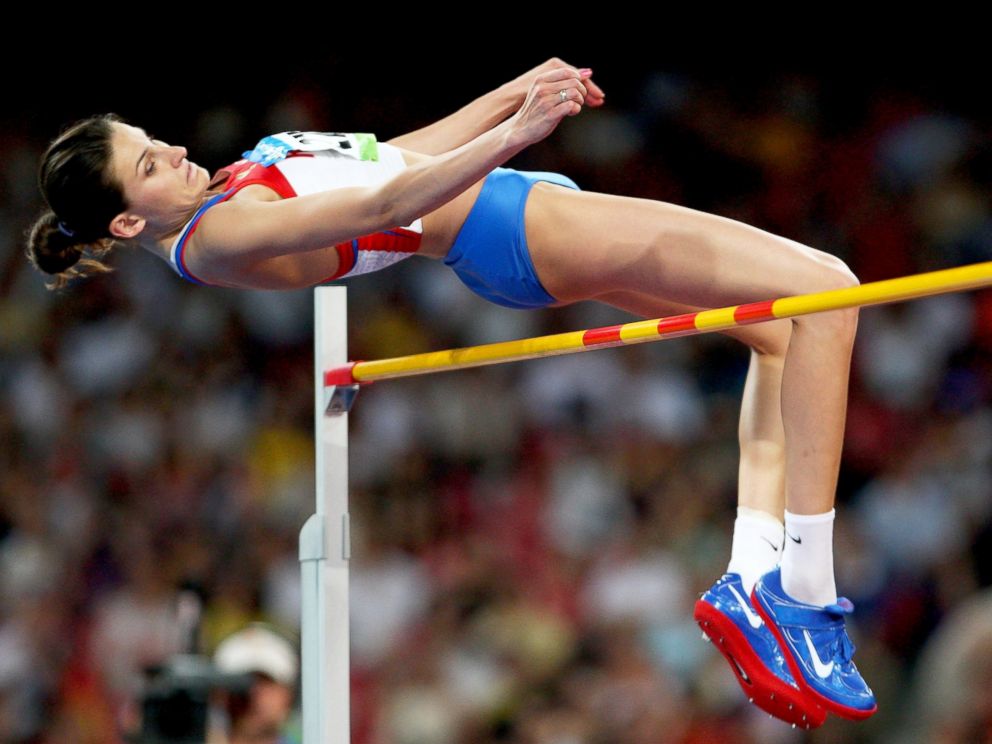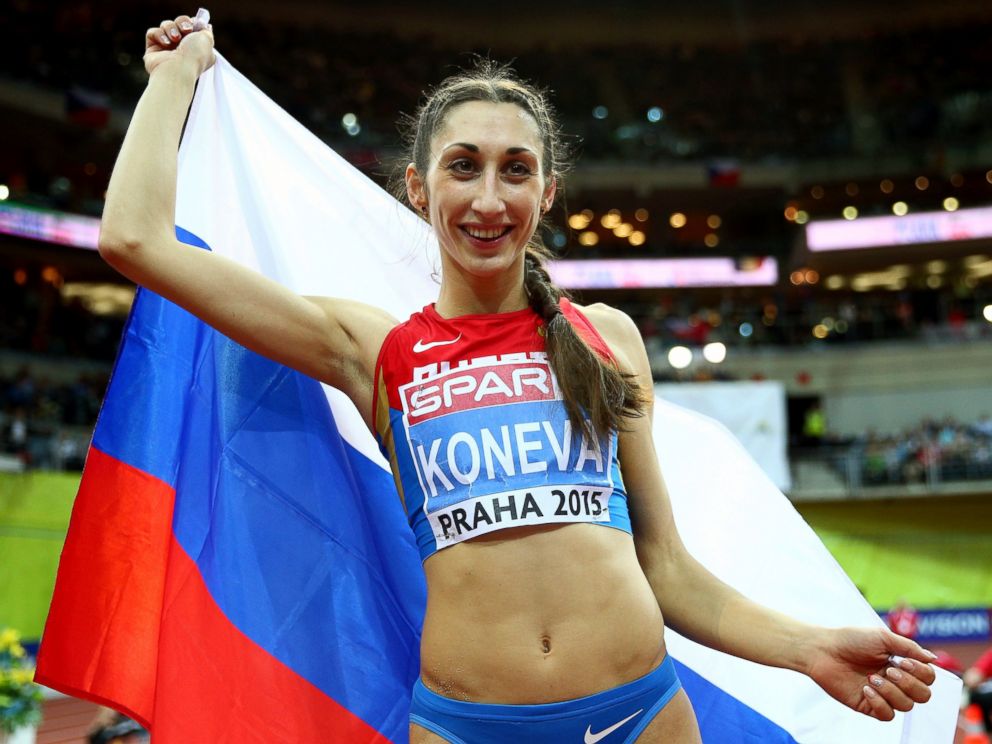Awaiting Potential Ban, Russia Glumly Prepares for Olympics – ABC News
SOCHI, Russia — In under two weeks Russia will learn whether it will be allowed to compete at this summer’s Olympic Games in Rio de Janeiro.
On June 17, the International Association of Athletics Federations (IAAF) will vote on whether to lift a suspension on Russian athletes, which was imposed last November after a years-long cover-up of widespread doping by the country was uncovered.
Russia has been rushing to prove it has cleaned up its anti-doping systems. But, battered by fresh revelations of doping among its top athletes at the 2008 and 2012 Olympics, which followed new allegations of an elaborate cover up at the 2014 Sochi Winter Olympics, Russia’s hopes of competing in Rio are now hanging by a thread. With only days left, Russian officials acknowledge they are increasingly nervous the country may not make it back.
Against this background, Russian athletes though have nonetheless been preparing for an Olympics they know they may well miss. Last week in Sochi, athletes took to the field at the Russian team championships. Normally, the event is one of the last qualifying competitions for Russia’s Olympic team selection. This year, however, a strange listlessness hung over it.
Watched by a smattering of fans under the beating sun at a Soviet-era stadium, the athletes sought to hit their required qualifying targets. The atmosphere was gloomy; results were mixed.
Russian athletes have been suspended for almost seven months from international competitions, meaning they have had no opportunity to practice against top competitors. Even the smattering of strong results seemed to prompt more pain than excitement. After winning her heat, one female athlete watched her prize certificate blow away in the wind, half-heartedly asking someone to go after it.
Among those competing there was a palpable sense of queasiness about the looming decision. “How can a great power, one of the mightiest, the top three in the world for light athletics, be excluded?” said Evgeny Zagorulko, a celebrated high jump trainer. “And so that the Americans have beneficial conditions? It’s just not honest.”
His anger directed against the United States was shared by many others at the event. Russian officials have claimed the doping scandal is a U.S-led conspiracy meant to embarrass Moscow. Many athletes were not apologetic, but angry, saying they consider themselves victims of a scandal they feel has been whipped-up against Russia.
 Michael Steele/Getty Images
Michael Steele/Getty ImagesZagorulko, a trainer for Anna Chicherova, an Olympic gold medalist who failed a retesting of a drugs sample from the 2008 Olympics two weeks ago, attacked Americans as “provocateurs” and said an Olympic ban would be unthinkable.
“Everything comes from the West,” Zagorulko shouted “Even our tomatoes come from the West. And what do you feed the tomatoes with, we don’t know!”
None of the athletes and officials who spoke to ABC News accepted that Russia had a larger doping problem than other countries. When other countries, they said, experienced large numbers of doping cases they were still not barred wholesale. Most felt the punishment was severe largely because of how Russia is portrayed in the world, particularly by the West.
“With Russia, it’s as though they’re just trying to annihilate it,” said Ekaterina Koneva, a champion triple-jumper.
 Ian Walton/Getty Images
Ian Walton/Getty ImagesWith its athletes now short on international practice, even if Russia were to go to Rio, it would be a significantly diminished presence.
Some athletes asked why other foreign sportsmen previously caught doping would be allowed to participate after serving out their bans, while Russia would suffer a blanket ban. They also asked why other sporting federations had not been totally barred when their mass doping was uncovered, some pointing to the U.S. cycling federation after the Lance Armstrong scandal.
“Why should we be the exception?” Yuri Borzakovskii, Russia’s national athletics team coach asked. He insisted that those who had doped had been removed from the team and that all of his athletes were ready to be tested.
Russia is accused not just of being lax in its anti-doping procedures, but of actively managing a corrupt system of doping across many disciplines, which sometimes forced athletes to dope if they wanted to remain on a team. The World Anti-Doping Agency (WADA) investigation that prompted the November ban recorded claims Russian sports ministry officials colluded in concealing doping, assisted by the country’s F.S.B. security service.
The accusations have left Russian officials in a tricky position. Publicly, they have tried to navigate a difficult balance between denouncing the allegations as a U.S.-led plot, while signaling to international bodies in sports that they are serious about reform.
Russia has taken steps to try to meet the IAAF criteria for reinstatement, removing the heads of the institutions implicated in the cover-up and submitting its athletes to an unprecedented number of tests. But officials have never recognized the central accusation that a doping system existed or that the F.S.B. was involved in the cover-up. Today, the country announced it would be introducing anti-doping classes for school children, as well as creating ethics training programs for coaches, athletes and officials.
In Sochi, most athletes, coaches and officials interviewed by ABC News scoffed at the idea the F.S.B. could have been involved, with some calling it absurd. None accepted that a system existed. Instead, many believed that doping was limited to individual sportsmen and their coaches, or rotten pockets in certain disciplines. Several athletes emphatically denied attempts to persuade athletes to dope.
“No one can understand why Russia isn’t going, why other countries are going and we aren’t,” said Koneva, the triple-jumper. “I don’t think Russia has a big problem with doping — I think they all have it. Just we suffer more than all the rest.”
Others said no doping system was possible because of the decentralized way Russia’s athletics training is run — individual coaches working with athletes, often at far-flung training centers. “There can’t be a system, because a system is centralized,” said Alexei Fyodorov, a triple-jumper hoping Rio will be his first Olympics.
The Russian government has focused on how its clean athletes will suffer if they are not allowed to compete in Rio. Some athletes have warned they will seek legal redress if they are blocked from the Games, arguing it would be unfair if they were punished for the faults of others.
International doping officials have shown little sympathy for the idea, though. This week, Richard Pound, the ex-WADA president who led the investigation into the Russian cover-up, suggested it had been so extensive that even clean athletes must have suspected something, but did nothing to alert authorities.
“Where you’re confronted with evidence of a complete corruption of the system in that particular sport, then what?” Pound told the sports site, Insidethegames. “Is anybody without guilt in those circumstances?”
Russian officials said they have taken steps, which they believe are substantial, to meet the criteria to be reinstated. Today, Russia’s sports ministry announced it would teach anti-doping classes to school children and said it would launch ethics training for athletes, officials, and coaches.



